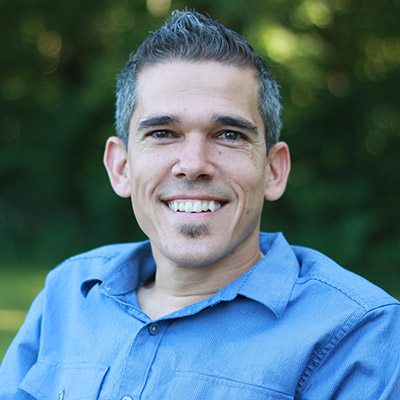A few years ago a team member began talking incessantly about the Enneagram and spouting off all sorts of information about numbers and types and wings and whatnot. She got us all intrigued and pretty soon, most of us had read the book The Road Back to You by Ian Morgan Cron and Suzanne Stabile. Since then, the Enneagram has been a great, and even fun, way for many of us to understand ourselves and each other differently.
I’m an Enneagram three. An achiever, or a performer. At my worst, I find my value in how I think I look to others. As long as I’m “successful,” then I’ll be important and valued by others. Even though I’m a therapist with all sorts of training on recognizing emotions, facing pain head-on, and healing hurts, it can be hard for me to be in tune with my own emotions or talk openly about my own personal life. How can you share your vulnerabilities with others when, as a three, one of your top concerns can tend to be image management?
Operating in health, though, threes can be confident in our abilities, driven toward our goals, and aware of our need to be loved for who we are and not what we do. At Compass Rose, we have a saying, “Not Perfect, Loved.” That phrase is as much for me as anyone. It’s a reminder to me that I don’t have to define myself as good or bad. I don’t have to view myself in light of my successes or failures. I can know who I am, how I operate, and I can bring my real self (you know, the parts you normally want to hide) into relationship with others in order to experience true connection and acceptance.
You may or may not be a three on the Enneagram or even have any idea what that means. But I bet you understand the desire to be known and accepted as you are. What would it look like for you to be real today? What might it mean for you to create the safety for your child, spouse, or friend to be real with you? Neuroscience has a lot to say today about the power of this type of attunement and connection on our brain and overall health. Take a step today to seek the healthy connection that you need and to communicate to your loved ones that you love and accept them as they are, apart from their behaviors or what they do for you. If this resonates with you but you’re not sure what that would even look like, call or e-mail us today to get some ideas and resources.

Executive Director
Mike Haarer is a Licensed Mental Health Counselor in the state of Indiana. He has worked in the field of adolescent residential treatment since 2004 when he began at White’s Residential & Family Services serving court-ordered adolescents in residential treatment through Indiana’s Department of Child Services. Initially, he specialized in the area of sexually maladaptive behaviors and was a Credentialed Sexually Abusive Youth Clinician. Mike studied under Psychologist and Author Dr. John Townsend, completing three years of his Counselor Training Program concentrated on emotion-focused, character-based Psychodynamic psychotherapy. He is working on his Ph.D. in Counselor Education & Supervision at Regent University in Virginia Beach and has served as an adjunct professor at Huntington University’s Graduate Counseling program. Mike presents on a variety of topics at local, regional, and national conferences and trains residential staff on Trauma-Focused Cognitive Behavioral Therapy. He has served as the Executive Director of Compass Rose Academy since its founding in 2012 and lives on the Wabash, Ind. campus along with his wife, Emily, and two daughters, Corabelle and Olivia.
Sign up to receive our
e-newsletter
By submitting this form, you are consenting to receive marketing emails from: . You can revoke your consent to receive emails at any time by using the SafeUnsubscribe® link, found at the bottom of every email. Emails are serviced by Constant Contact
